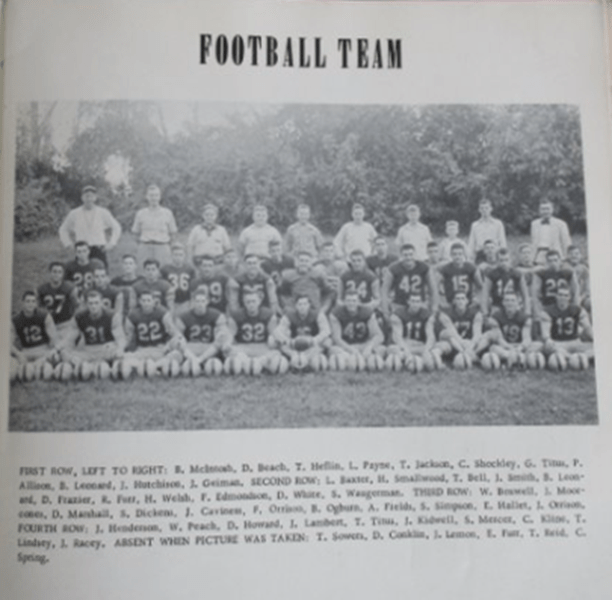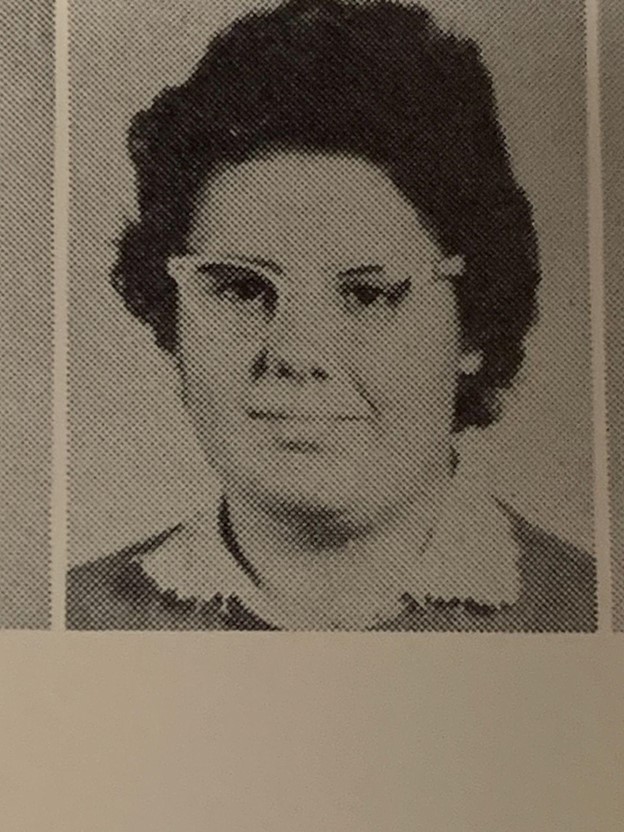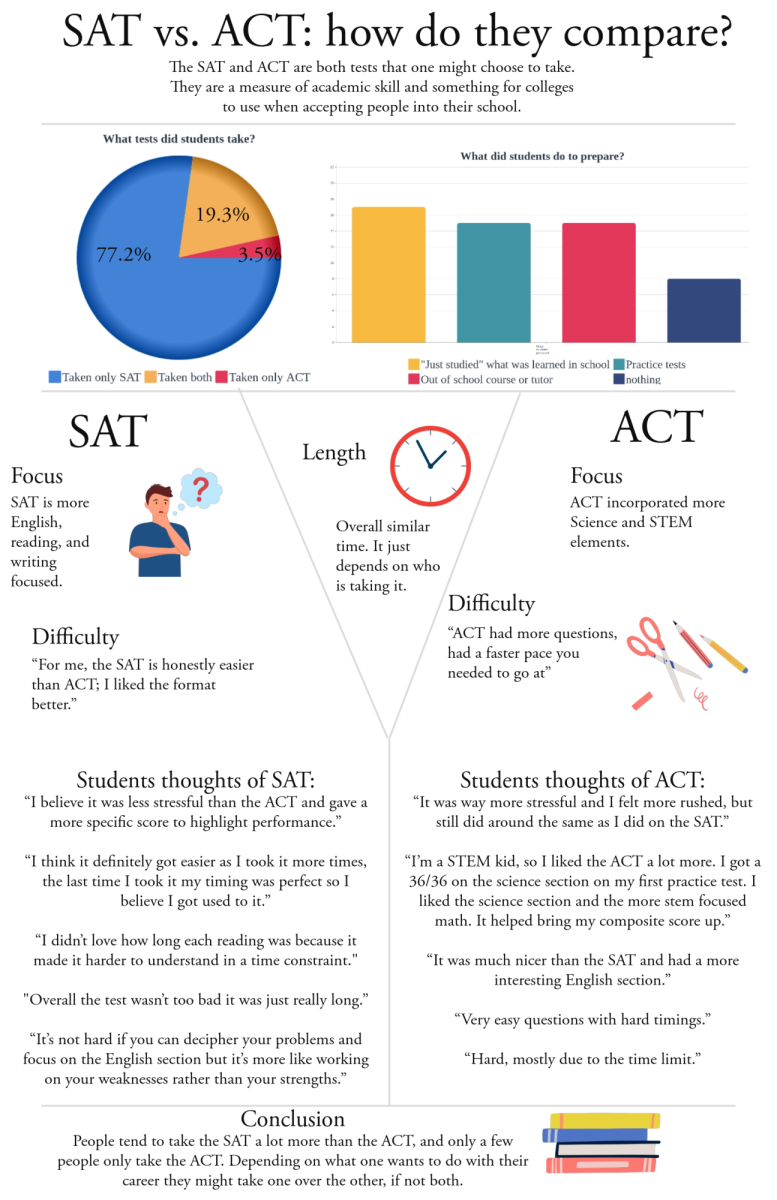CONVEYOR BELT EDUCATION: GRADUATES’ OPTIONS SHROUDED BY SOCIETAL STANDARDS
School has become a factory and students are cycled through six years of elementary school, three years of middle school, four years of high school, then they’re lurched to college on a conveyor belt and after four years they are spit out into the real world with loads of student debt and no marketable skills.
As soon as students enter middle school they are ingrained with the belief that a four-year college is the only viable option for them to pursue after high school. All the while schools fail to mention the other marketable options like trade school, the military, or an actual job.
“The big push especially in Loudoun has been college, so the stuff we do for careers seems to take a backseat,” said Dan Croyle, head of the counseling department.
One might assume that this shift is a result of a lack of interest from students, but the real issue seems to be a lack of information about these options being presented by the school system.
“I think we do an awful lot for students that are college-bound, but I get concerned about students that are not necessarily college-bound,” said Langston West the head of the career center.
This factory-like system quickly becomes monotonous. Instead of being provided with skills, students are being programmed to memorize facts, take a test, and then wipe their brains for the next information. The end goal, of course, is a college acceptance—as if that is an end in and of itself.
“It started in the late 80s with the ‘work smarter not harder’ idea and then it became really stigmatized to want to do a job in construction or dig a ditch or fix pipes,” said Daniel Chandlee, technical education teacher.
Schools spend all of their time telling students all about the illustrious benefits of going to college but not the affluence that can be obtained from pursuing a trade.
“It’s not the most glamorous work you’re ever going to do, but it will definitely pay the bills,” said Chandlee.
By not promoting trades, the school system is stifling students’ options to get ahead. Trade school is a viable option, and the skills learned at those schools will be imperative to the continued growth of upcoming generations.
“If we have a million doctors, that’s great,” said Chandlee. “But nobody’s going to have a place to go to the bathroom or a house to live in [without attendance at trade schools].”
The haughty attitude of Loudoun County has led students to look with disdain on any option other than four-year college, but electricians, plumbers, welders, and construction managers are always going to be imperative to growth in society.
Trades and tangible skills are important, and “we can’t just all go to college and all be on that track,” said Chandlee. Trades are “not a negative alternative to going to college that’s what needs to be stressed.”
The way to emphasize this point would be by increasing students’ options when it comes to career and skill oriented classes, allowing them to study information that is specific to what they are interested in or what would benefit them, rather than classes that won’t benefit them in the future.
According to an article written by the senior vice president of workforce strategies at Strada Education Network, Michelle Weise, “43 percent of recent graduates” from college suffer from underemployment. Underemployment is having a job that doesn’t require a bachelor’s degree, which means a student is putting to waste the four years they just spent at college.
“If graduates start off underemployed, there is incredible inertia that prevents them from getting out of that rut,” wrote Weise.
The reality is that most students aren’t going to get out of this rut by plugging a formula into a calculator or by writing a perfectly formatted essay. They are going to need the versatility and ingenuity that most college degrees will not provide.
“I just feel that leaving high school there’s a lot of students that have no idea what they want to do,” stated Croyle.
If students had access to opportunities that weren’t strictly based on academics they would have a greater expanse of career options to choose from. With this in mind, the school system should find ways to promote trades and apprenticeships.
Trades allow students to “get into an apprenticeship or get into a job much quicker and then learn on the job as opposed to spending extra years in college,” said Croyle.
The school system should accept their duty to serve students and provide them with every possible option to be successful, rather than sending students through the factory year after year.
If a student chooses a skill to focus on they could go “to Monroe or Academies, get out and they can start making $50,000 or $60,000 a year,” said Chandlee.
Companies want employees with tangible skills, and our school system could provide that by offering certification and training for EMT, mechanics, or construction management at the school.
The school system could also promote trades by making options like Monroe or Academies that offer training in things like welding, HVAC, or healthcare services more apparent and accessible to students.
West took a group to Academies of Loudoun and “LCHS was the largest school base of the other 15” schools that attended, said Croyle. Despite the growing interest among students and parents, Academies of Loudoun appears to have an acceptance rate of less than 10 percent, which leaves most students with no other outlets to pursue their specific interests.
“It’s easier to sit students in front of a computer, and say let’s run them through some scenarios,” said Chandlee.
Easier isn’t always better. In today’s diverse and competitive workforce it is imperative to provide students with skills that will help them stand out in a large pool of candidates.
“It’s a machine, so you go through the whole process and it wants to spit out that one made thing that is successful, so that in the past has always looked like a college graduate but I think it’s slowly changing,” said Chandlee.
Our society doesn’t need more carbon copies of graduates that leave college with nothing to show but a piece of paper, it needs more workers who are trained and prepared to serve their communities.
Your donation will support the student journalists of Loudoun County High School. Your contribution will allow us to purchase equipment and continue to print our issues for the students at our school.



















